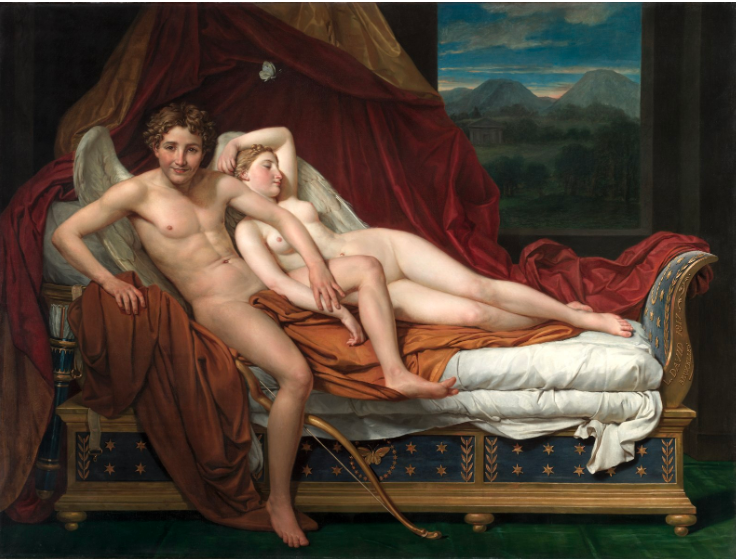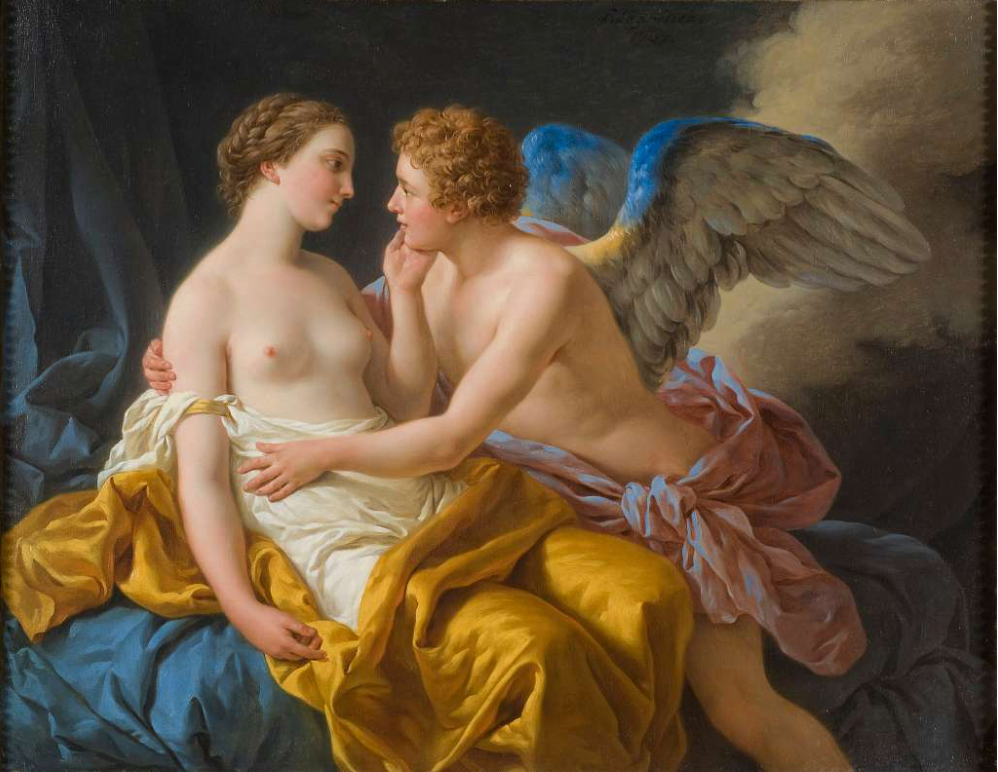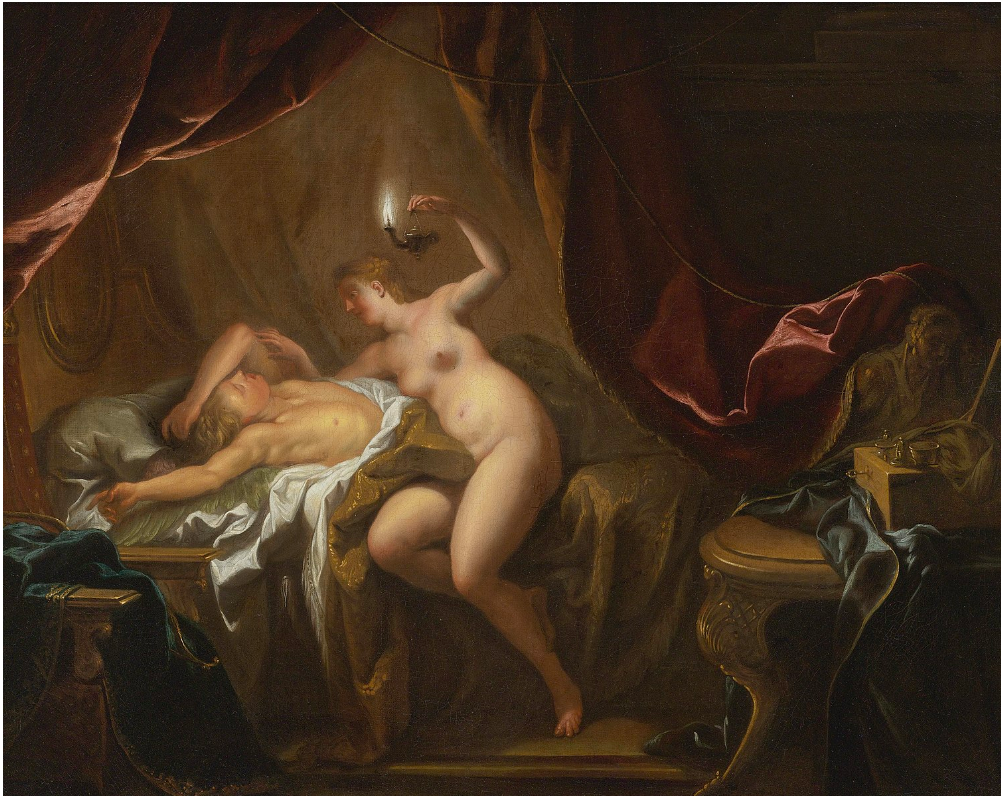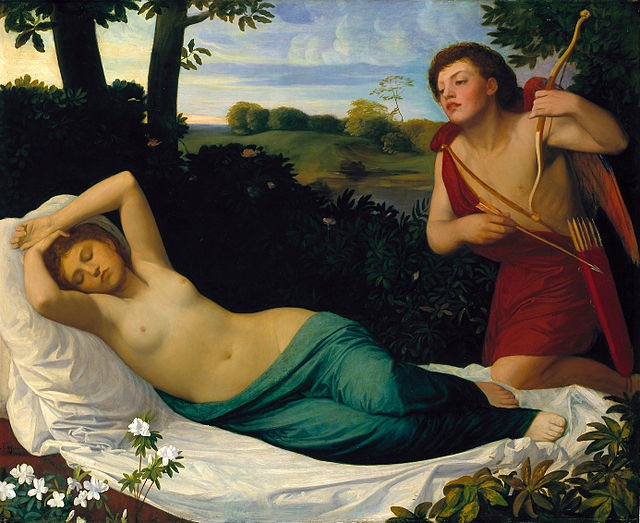
Psyche: A Greek Myth About Women Demanding Intimacy
Psyche not only represents the archetype of a seductress, but she epitomizes one who completes a healing journey and evolves into a healthy woman through it.
Most people would assume that the ultimate goddess of sex would be Aphrodite, the ancient Greek diety of love, beauty, sex, and seduction. However, we will be talking about her greatest rival, Psyche – a mere mortal.
Why is she such an important figure?
My dissertation in my Ph.D. program in Clinical Psychology began as a search for answers to my personal struggles with my romantic life. I was able to find very little on my chosen subject. However, I found Aphrodite and the myth of her rival, Psyche, to be very pertinent. Although the myth may be 2000 years old, the four tasks Psyche completes are absolutely relevant in the 21st century for modern Goddesses of Sex on their healing journey.
Psyche found the courage to do the immense self-work that all Aphrodisian Women should pursue to live healthy and happy lives – both romantically and personally.

Like many women, Psyche thought that physical intimacy would open up her husband to emotional authenticity. But that’s not how it works. If a man gets everything he wants, why would he give more?
Psyche was born a mortal beauty. Psyche’s father was a king who had three beautiful daughters. The two older ones were attractive and praised for their looks, but the youngest, Psyche, was more beautiful than words could describe. Crowds of men would travel from across land and sea to lay their eyes on her other-worldly perfection.
Where once men would sail far and wide to pray at Aphrodite’s altar, now it was Psyche who was honored in prayer. After Psyche’s rise to fame, Aphrodite’s temples were left empty. Sacrifices and ceremonial rites to Aphrodite went unperformed; her statues were no longer garlanded, her altars were bare, and her shrines grew unsightly and grimy with cold ashes.
How did Aphrodite respond? She lost her mind. Her jealousy was so venomous that she pledged to destroy Psyche by any means necessary. This is a glimpse of Aphrodite as the warrior goddess. Ancient cult status in Sparta showed her bearing arms.
She instructs Psyche’s father to tie Pysche to a rock and sends her son, Eros, the god of love (who you might know as Cupid), to shoot Psyche with one of his arrows, forcing her to fall in love with a monster.
However, it didn’t go exactly as planned. Distracted by Psyche’s beauty, Eros accidentally stabs himself with one of his arrows and falls madly in love with her. He pulls some strings and has her delivered to his luxurious palace.
Now, Eros is important in our contemporary ideals. He accurately represents most of the alpha men that most women prize and “goddesses of sex” are particularly attracted to. However, he himself is not greatly evolved and is not ready for a real relationship. That doesn’t stop him from trying to make Psyche his own—on his bizarre terms.
Eros refuses to reveal himself to Psyche. In fact, he forbids her from ever seeing his face. This is an outstanding representation of men who refuse true intimacy. Despite not knowing its owner, Psyche is drawn to Eros’ glorious palace. This represents how young women are often seduced by the allure, wealth, and excitement of the alpha male’s world.
Without showing his face, Eros seduces Psyche and makes her his wife. She begins an opulent yet lonely life, symbolizing the unequal relationships many women face. Every night, they have sex and leave in the morning before dawn. Lots of women can relate!

Depression is chaos. It’s too many thoughts and not seeing a way out. The Psyche myth provides a template on how to get out of it.
Finally, when Psyche can no longer bear being subjugated and denied, she decides to break Eros’ rule; she must know the identity of her secretive husband. So, when Eros visited that night, Psyche waits until he fell asleep, uncovers the lamp, seizes a sharp razor, and holds the light above him.
The lamp and the razor are the metaphorical tools all women can use to launch their path to consciousness. The lamp illuminates what lies in the dark, and the razor severs illusion from truth.
Furious that Psyche has broken his rules and discovered his identity, Eros flies off. Basically, he dumps her.
Psyche immediately regrets her desire for the truth. She judges the light of consciousness as an uncontrollable and reckless force. But we are not ready for real intimacy until we can accept that true love requires brutal honesty – and a willingness to lose men who will not be honest and intimate.

Women must not accept anything less than full equality in a relationship.
Psyche goes to great lengths to deny that her marriage with Eros was toxic. When he leaves her, her first instinct is to win him back.
Spoiler alert: she will. However, it’s not because she did something for him; her journey toward true love is about her harnessing her own power.
Post a comment